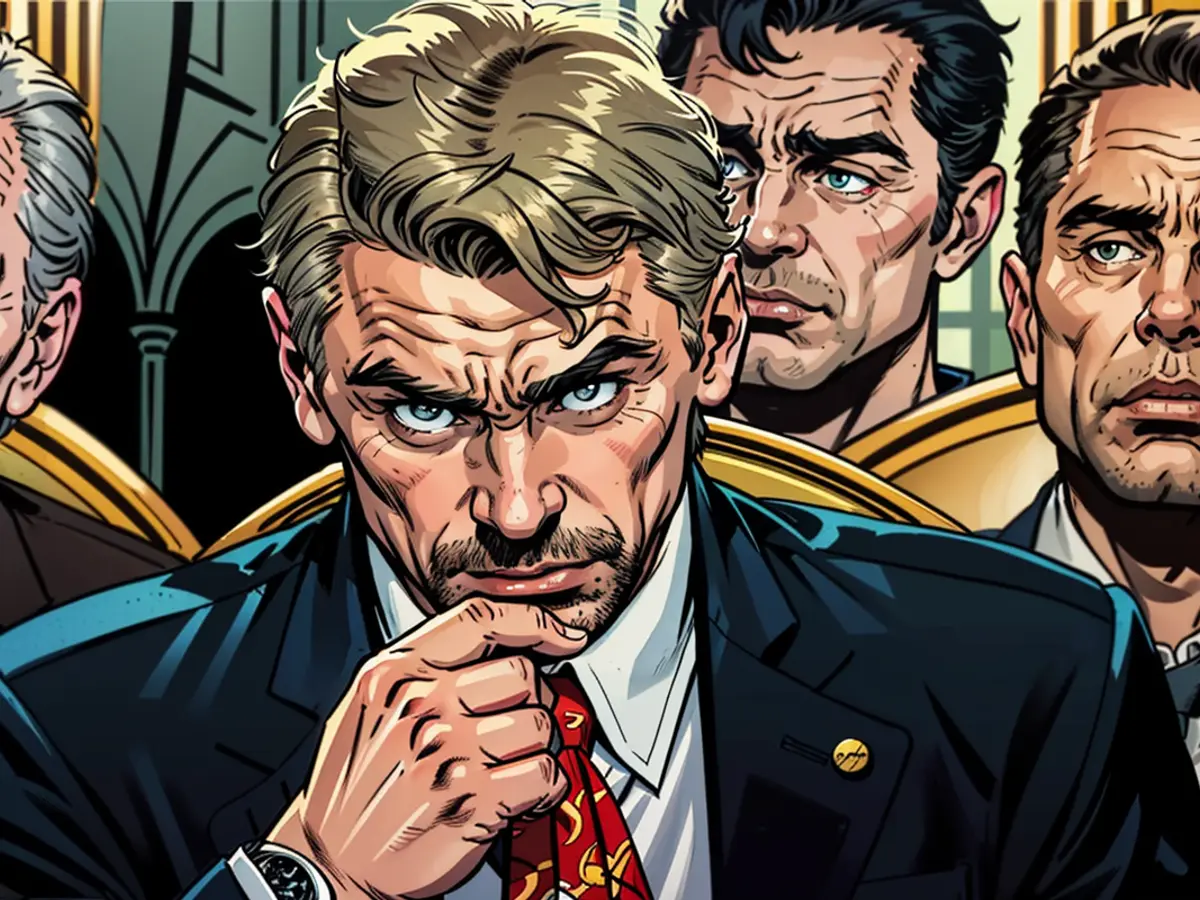Peak in Washington - The Kreml considers the NATO decision a threat to Russia
The Kremlin has labeled Nato's decisions regarding Ukraine as a threat to its own security and has announced countermeasures. Dmitri Peskov, Kreml spokesperson, stated to journalists in Moscow, "This is a very serious threat to our country's national security. It requires from us thoughtful and coordinated response measures to contain Nato, to counter Nato."
Peskov mentioned the Russian atomic doctrine once again and confirmed that changes were being made to it. He did not provide details. The current guiding principle states that Russia can only use atomic weapons in response to an atomic attack on its own territory or an existential threat to the country in the event of a conventional attack. Hardliners in Moscow have criticized this stance as too soft.
At their summit in Washington, Nato reaffirmed to the attacked Ukraine that they cannot be stopped on their way into the alliance. In the final declaration, the path to membership was described as irreversible. At the same time, it was emphasized that a formal invitation to join could only be issued when all allies agreed and all entry conditions were met. This includes reforms in the areas of democracy and economy, as well as security.
Russia began its armed conflict with Ukraine with the intention of preventing its neighbor from joining Nato. One of Moscow's demands for peace negotiations is, in addition to territorial concessions, Ukraine's renunciation of joining the Alliance.
- The Kremlin's response to Nato's moves towards Ukraine includes planned countermeasures, considered a significant threat to Russia's security by spokesperson Dmitri Peskov in Moscow.
- Peskov referenced the Russian atomic doctrine during his press conference, hinting at potential modifications due to the perceived international conflicts and Nato's actions.
- In light of Russia's threat, NATO leaders firmly stood behind besieged Ukraine during their summit in Washington, affirming their intention to support Ukraine's membership aspirations.
- Despite this, NATO emphasized that a formal invitation to join would only be issued once all allies agreed and all entry requirements were met, including political and economic reforms.
- Russia, which initially launched armed conflicts with Ukraine to prevent its neighbor from joining NATO, now finds itself in a standoff with the alliance over Ukraine's NATO membership aspirations.
- In response to the international tensions and threats, US and Western leaders have been engaging in diplomatic talks with both Moscow and Kyiv to maintain stability in the region.
- Dmitri Peskov, in a recent statement, suggested that Russia will continue to monitor developments in Ukraine closely and take necessary measures to protect its national security interests.








